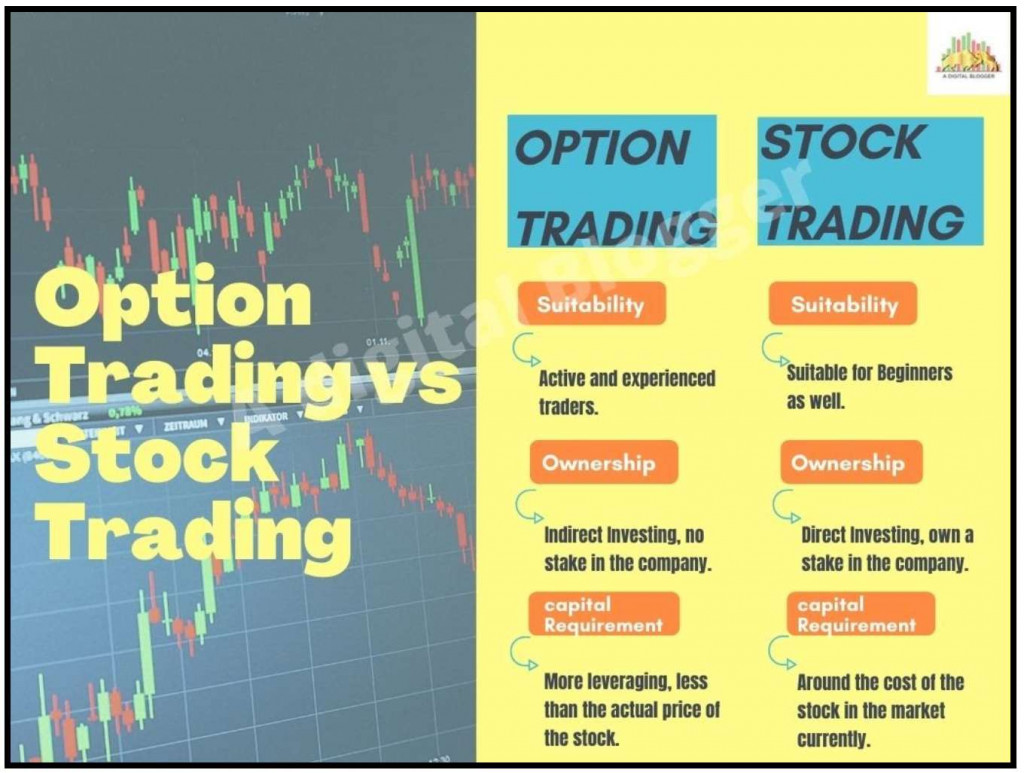Introduction
Navigating the complexities of financial markets, investors often face a crucial decision: choosing between options trading and regular trading. Both approaches possess unique advantages and considerations, and understanding these nuances is paramount for informed decision-making. In this guide, we delve into the benefits of options trading versus regular trading, providing a comprehensive assessment of each method to help you optimize your investment strategies.

Image: www.adigitalblogger.com
What is Options Trading?
Options trading involves contracts that provide the buyer the right, but not the obligation, to buy (call option) or sell (put option) an underlying asset at a predetermined price (strike price) before a specified date (expiration date). These contracts offer flexibility, allowing investors to speculate on future market movements, hedge risks, or generate income through premium payments.
Benefits of Options Trading
1. Leverage: Magnifying Profit Potential
Options offer leverage, allowing investors to control a larger number of underlying shares with a smaller investment. This amplifies potential profits in favorable market conditions. For instance, if an investor purchases a call option with 100 shares, they gain the potential to profit from price increases even with a modest investment, akin to controlling 100 shares directly.

Image: www.youtube.com
2. Limited Risk: Capping Potential Losses
In contrast to regular trading, where losses are theoretically unlimited, options limit potential losses to the premium paid. If the market moves against the investor, the most they can lose is the initial investment, providing a safety net that regular trading lacks.
3. Flexibility and Versatility: Tailoring Strategies
Options provide immense flexibility, enabling investors to tailor strategies to their risk tolerance and investment goals. Whether seeking income generation through selling premium or protecting existing positions with hedging techniques, options empower investors with a wider range of strategic choices.
4. Income Generation Potential: Premium Earnings
Option writers have the potential to generate income through premium payments received for selling options contracts. These premiums compensate for assuming the obligation to buy or sell the underlying asset at a predetermined price, offering additional income streams for investors.
Benefits of Regular Trading
1. Simplicity and Straightforwardness: Ease of Understanding
Regular trading involves direct buying or selling of underlying assets, such as stocks or bonds. It is a simpler approach compared to options trading, making it more accessible to investors with less experience or a preference for clarity.
2. Direct Ownership: Entitlement to Underlying Asset
Regular trading grants investors direct ownership of the underlying asset, providing voting rights, dividend payments, and potential capital appreciation. This can be advantageous for long-term investors seeking to build wealth and participate in company growth.
3. Tax Advantages: Favorable Treatment
Capital gains and dividends from regular trading may qualify for favorable tax treatment in certain jurisdictions, potentially reducing the overall tax burden and enhancing returns.
Benifits Of Options Trading Vs Regular Trading
Conclusion
Both options trading and regular trading have their unique advantages that can align with different investment goals and risk profiles. Options trading provides leverage, limited risk, flexibility, and income generation opportunities, while regular trading offers simplicity, direct ownership, and potential tax advantages.
Ultimately, the best choice depends on individual circumstances and financial objectives. By carefully considering the benefits outlined in this guide, investors can make informed decisions that align with their investment strategies and goals.






